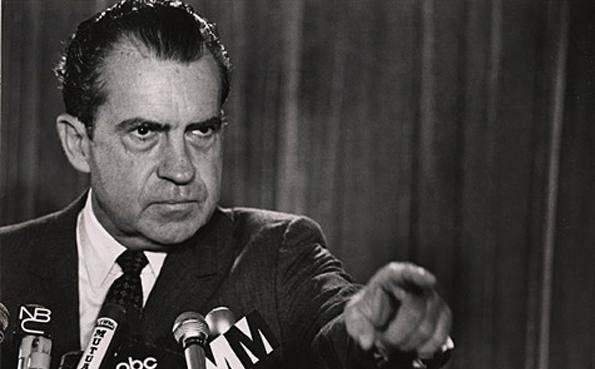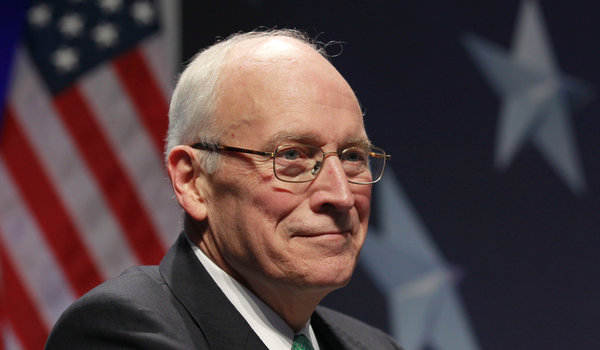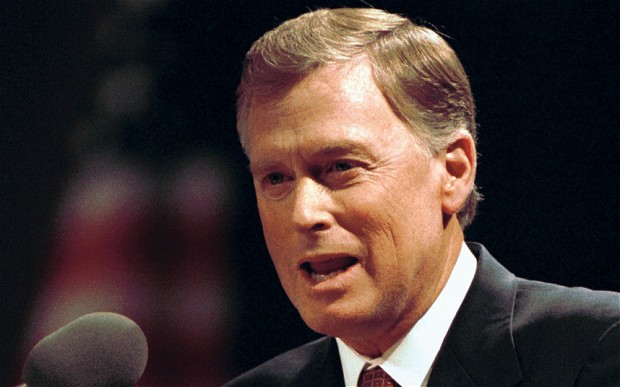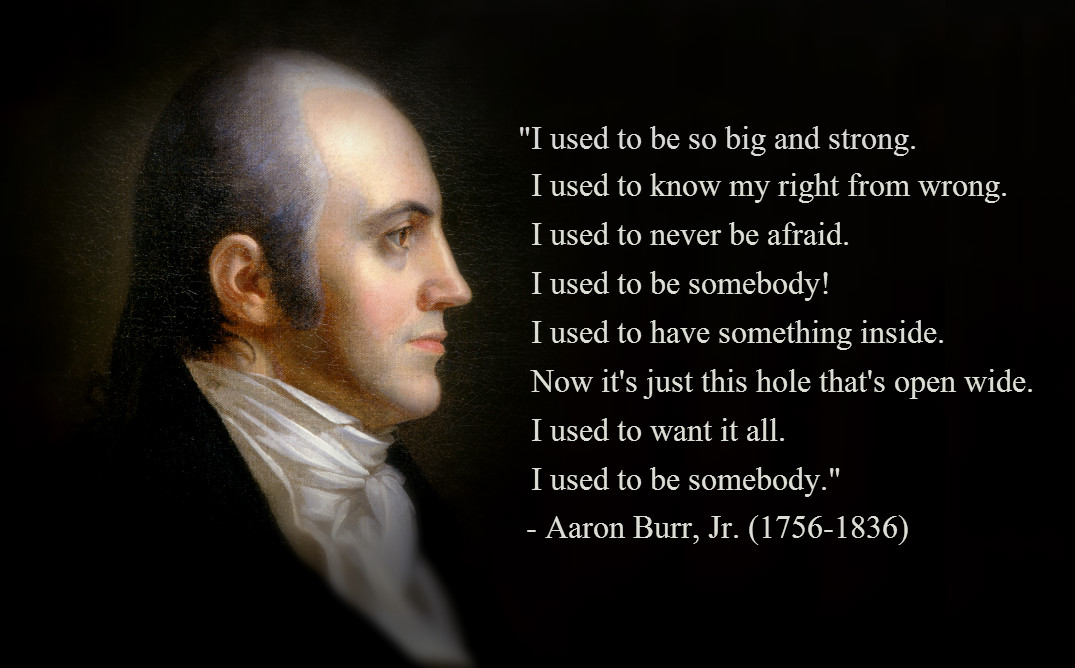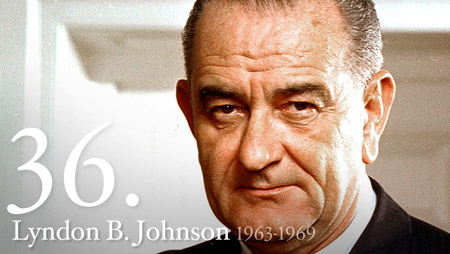

| Visitors Now: | |
| Total Visits: | |
| Total Stories: |
Top 10 Worst U.S. Vice Presidents

Since the creation of the American presidency in 1789, the role of the vice president has changed several times.
In the early days of the republic, the recipient of the second most electoral votes would receive the rank of second in command, The role of Vice President.
As time went on, presidential candidates picked their running mates and both would be nominated by the electoral college. Over the past six decades, the duties of the vice president expanded beyond simply presiding over the Senate as they began taking on crucial roles in policy making. And we actually began hearing from them before the election. The first vice presidential debate took place in 1976, and they’ve been a regular feature of recent campaigns.
We’ve compiled Top 10 Lists of U.S. Presidents in the past, from top 10 most forgotten U.S. to the top 10 worst U.S. Presidents to the most Top 10 most controversial with regard to their drinking habits, and Top 10 U.S. Presidents with Serious illnesses Now it is time to compile a list of the worst and the humiliating U.S. vice presidents as well as the VPs that did more harm than good.
White House Trivia
THE VICE PRESIDENTS
Which vice president stated the follow… “Once there were two brothers. One ran away to sea; the other was elected vice president of the United States. And nothing was heard of either of them again”?
Answer: Thomas Marshall.
Which vice president believed that the presidency should be a job for life and that members of Congress should be granted seats based on a hereditary system?
Answer: John Adams.
What former vice president upon his retirement turned down an honorary degree from Oxford University by saying that he did nothing to deserve it and that no one knew who he was?
Answer: Millard Fillmore, who made this claim after being President.
Which vice president admitted that he might have been one of the worst Presidents of the Senate ever?
Answer: Theodore Roosevelt, who said that he was sleeping through sessions and enrolled in law school while Vice President because of boredom.
1. Richard M. Nixon
Richard Milhous Nixon is one of the most fascinating and one of the most controversial political figures in U.S. History. His long political career started out in 1947 when he was elected to the House of Representatives. By 1952, Nixon had been chosen as Dwight Eisenhower’s vice-presidential running mate, a big mistake Eisenhower regretted years later.
During the 1952 campaign, Nixon jeopardized the presidential candidacy of Dwight Eisenhower by promptly getting himself embroiled in scandal. “Tricky Dick,” as a newspaper dubbed the Vice Presidential candidate, was accused of maintaining an illegal slush fund stocked by wealthy businessmen. In a televised address, later known as the “Checkers” speech, he decried the allegations — his wife didn’t even have a mink coat, he pointed out — and said the only gift he would ever taken was an adorable spotted dog named Checkers. “The kids, like all kids, love the dog,” he growled, “and I just want to say this right now, that regardless of what they say about it, we’re gonna keep it.” Nixon stayed on the ticket, and he and Eisenhower went on to win the election. Nixon rode out two terms as Vice President with not that much impact, with the exception of two infamous trips abroad: During a tour of Latin America, people spat on his cavalcade, and in 1959 he engaged in what become known as the controversial “kitchen debate” in Moscow with Soviet leader Nikita Khrushchev. Other than those standouts, he filled his office inconsequentially. As Eisenhower himself put it when asked about Nixon’s contributions, “If you give me a week, I might think of one.”
Watergate Scandal: The scrutiny continued into his presidency.
Watergate entered the political lexicon as a term synonymous with corruption and scandal, just like the name Nixon,
Initial investigations of Watergate were heavily influenced by the media, heavily credited to the work of Bob Woodward and Carl Bernstein from the Washington Post, along with their mysterious informant, Deep Throat.
Political investigations began in February 1973 when the Senate established a Committee to investigate the Watergate scandal. The public hearings of the Committee were sensational, including the evidence of John Dean, Nixon’s former White House Counsel. The Committee also uncovered the existence of the secret White House tape recordings, sparking a major political and legal battle between the Congress and the President.
Nixon did three speeches on the Watergate scandal during 1973 and 1974. The first was on April 30, 1973, in which he announced the departure of Dean, Haldeman and Ehrlichman. A more defiant speech was delivered on August 15, 1973. Perhaps the politically most difficult speech was the one on April 29, 1974, in which Nixon released some of the transcripts of the White House tapes.
In 1974, the House of Representatives authorized the Judiciary Committee to consider impeachment proceedings against Nixon. The work of this Committee was again the spotlight a quarter of a century later when Bill Clinton was impeached.
Nixon’s last days in office came in late July and early August, 1974. The House Judiciary Committee voted to accept three of four proposed Articles of Impeachment, with some Republicans voting with Democrats to recommend impeachment of the President.
The final blow came with the decision by the Supreme Court to order Nixon to release more White House tapes. One of these became known as the ‘smoking gun’ tape when it revealed that Nixon had participated in the Watergate cover-up as far back as June 23, 1972. Around the country, there were calls for Nixon to resign.
At 9pm on August 8, 1974, Nixon delivered a nationally televised resignation speech. The next morning, he made his final remarks to the White House staff before sending his resignation letter to the Secretary of State, Dr. Henry Kissinger.
Gerald Ford, the 38th President of the United States and also Nixon’s second Vice President, assumed the role of Presidency after Nixon resigned on August 9, 1974. He was the first Vice-President and the first President to ascend to both positions without being elected. Regarded on all sides of politics as a decent man, Ford will be remembered for pardoning Richard Nixon.
2. Dick Cheney:
When Vice President Dick Cheney left office, his approval rating stood at a staggeringly low 13 percent. Few political figures in history have been so reviled. As his memoir, In My Time, hits bookstores today, and he does a series of friendly interviews in the press, some Americans with short memories might wonder, “Why is it that so few were willing to endorse his performance in office?”
Advocate of THE WAR IN IRAQ:
President Bush was mostly responsible for the War in Iraq, as do the members of Congress who voted for it. But Dick Cheney’s role in the run-up to war was partially irresponsible and mendacious. And after the invasion he contributed to the early dysfunction on the ground. Even Iraq War supporters should rue his involvement.
The most succinct statement of his misdeeds comes from “The People Vs. Dick Cheney,” a 2007 article that was written by Wil S. Hylton. The piece recounts how Cheney undercut the CIA by instructing subordinates in that agency to stovepipe raw intelligence directly to his office. He also cooperated alongside Donald Rumsfeld to establish an alternative intelligence agency within the Pentagon. Both of these actions directly contributed to the faulty information that informed the public about going to war.
Advocate of TORTURE:
In December 2008, Dick Cheney acknowledged what many people had already suspected: that he was the mastermind behind the Bush Administration interrogation tactic in which detainees were blindfolded, strapped to a board, and held down as water was pored into their cavities until their lungs began to fill up with it. The entire purpose was to trick the detainees into thinking that they would drown. Almost sounds like a fake execution, does it not? Christopher Hitchens gamely subjected himself to the procedure, knowing he could stop it at any time.His conclusion: “If waterboarding does not constitute torture, then there is no such thing as torture.”
Advocate of Spying:
Cheney also admitted that he was behind the spying in his memoirs. But Gellman makes a compelling case that he lies about a confrontation with an ailing John Ashcroft to make himself look in much better light In any case, it is beyond dispute that at Dick Cheney’s urging, the federal government spied on millions of non-terrorist Americans without a warrant. And that Cheney wanted the program to continue even after it was declared illegal.
That’s not all:
Dick Cheney was a self-aggrandizing criminal who used his knowledge as a Washington insider to subvert both informed public debate about matters of war and peace and to manipulate presidential decision making, sometimes in ways that angered even George W. Bush.
After his early years of public service, he capitalized on connections he made while being paid by taxpayers to earn tens of millions of dollars presiding over Halliburton. While there, he did business with corrupt Arab autocrats, including some in countries that were enemies of the United States. Upon returning to government, he advanced a theory of the executive that is at odds with the intentions of the founders, successfully encouraged the federal government to illegally spy on innocent Americans, passed on to the public false information about weapons of mass destruction in Iraq, and became directly complicit in a regime of torture for which he should be in jail.
3. Dan Quayle
James Danforth Quayle was not really a bad vice-president, he had the confidence of President Bush and had been highly respected as a Senator. However the media destroyed him, pouncing on every gaffe (and there were a lot of them). Quayle was made into a national joke. Johnny Carson even thanked Quayle during his final week for making the joke writing so easy.
The biggest gaffe Quayle made was during the vice-presidential debates where he compared himself to John F. Kennedy. Senator Lloyd Bentsen, running mate of Michael Dukakis, responded “I served with Jack Kennedy, I knew Jack Kennedy, Jack Kennedy was a friend of mine. Senator, you’re no Jack Kennedy.” The damage was forever done.
It didn’t get any better after he was in office. Vice President Quayle made the famous mistake during a spelling bee of telling a student he was missing the “e” on the end of “potato”. Some other great quotes from Dan Quayle include, “There is nothing that a good defense-cannot beat a better offense” and “What a waste it is to lose one’s mind. Or not to have a mind is being very wasteful. How true that is.”
In 2000, Vice President Quayle ran for the presidency. His campaign never made it off the ground. He came in eighth in the Iowa straw poll and he withdrew shortly after.
Sources:
Paul Slansky et al. Dan Quayle: Airhead Apparent : A Fair, Unbiased Look at Our Nation’s Most Dangerous Dimwit . Bathroom Readers Pr, New York: 1992.
4. Aaron Burr:
Aaron Burr was the fourth worst vice president in American history. Thomas Jefferson hired Burr for the position for regional balance and because he opposed the Federalists. A quirk in the Constitution led Burr to tie Jefferson for the presidency. Burr refused to step aside, resulting in a constitutional crisis. While in office, he utilized one of his 10 commandments and shot and killed Alexander Hamilton. Later, he conspired to commit treason. As a result, Jefferson refused to work with him and removed him from the race for presidency inn 1804. Although a decent parliamentarian, Burr proved too self-serving, ambitious, and dangerous for the country.
Vice President Thomas Jefferson challenged President John Adams for the White House in 1800. Jefferson selected New York’s Aaron Burr for his running mate. Burr had solid credentials, connections, and despised the Federalist Party. After a long and bitter campaign, Jefferson and Burr tied in the Electoral College with Adams finishing third. At the time, electors voted for president and vice president separately. This glitch in the system allowed Burr to claim the presidency.
Most Jeffersonians wanted Burr to leave. Although claiming he did not want the presidency, the New Yorker refused the entreaties throwing the election to the House of Representatives. Some Federalists attempted to throw the election to Burr, but failed. Alexander Hamilton stepped in and supported Jefferson. He hated Jefferson, but feared Burr.
Upon assuming office, Jefferson froze Burr out of the administration. As a result of his refusal to step aside in the president’s favor, Burr became a pariah. Burr never explained why he refused to disavow the White House for Jefferson. His inaction could only be interpreted as a desire to win the presidency for himself.
Whatever Burr’s motivation, he served ably as President of the Senate. His parliamentarian skills dwarfed his predecessors and even handedness impressed the Federalists. However, Burr’s ostracism led him to seek out Federalist friends making the Democrats uneasy. In 1802, he blocked administration attempts to repeal the Judiciary Act virtually cutting the vice president off from his own party.
By 1804, Jefferson looked to re-election while Burr looked to the New York governorship. The president lost confidence in his vice president and jettisoned him to the political wilderness. Burr hoped to remain in politics by running New York State. Jefferson settled on George Clinton as his running mate.
Burr lost the New York Gubernatorial race and blamed his defeat on Clinton and Hamilton. Almost immediately, Burr and Hamilton entered into a deadly waltz. Hamilton besmirched Burr’s character at a dinner party comparing him to the Roman traitor Catiline. The pair exchanged letters with Hamilton refusing to assuage Burr. The two decided to settle the affair with pistols. On July 11, 1804, Vice President Burr shot and killed former Treasury Secretary Hamilton.
Burr’s actions led to murder charges, but he was never tried for the crime. After leaving office, the former vice president engaged in a land scheme designed to create an independent nation out of the Louisiana Territory. When rumors started to float, the government charged Burr with treason. Chief Justice John Marshall presided over the trial and defined treason so narrowly as to make conviction nearly impossible. That did not stop him from conspiring even more…he continued to conspire and tried to win European backing for an overthrow of Mexico. After being rebuffed, and expelled from England, Burr returned to New York and died in 1836.
Aaron Burr’s adventuresome personality undercut his political gifts. Although a master politician and skilled parliamentarian, he could not resist the lure of power. He refused to step down in the Election of 1800. After the vice presidency, he attempted to carve out his own nation out of Louisiana and later worked to conquer Mexico. In between, he shot and killed Alexander Hamilton in a duel. In the end, Burr was the worst vice president in history.
Sources:
Ellis, Joseph. American Sphinx: The Character of Thomas Jefferson. Vintage, New York: 1998.
Fleming, Thomas. Duel: Alexander Hamilton, Aaron Burr, and the Future of America. Basic Books, New York: 1999
5. Lyndon B. Johnson
The vice presidency certainly ended up being worth more than a warm bucket of spit to Lyndon Johnson. Johnson was selected for John F. Kennedy’s presidential ticket in 1960 to create regional balance. Kennedy was a handsome Harvard graduate from Massachusetts and Johnson a gruff career politician from Texas. There were few good feelings between the two men.
When Kennedy was assassinated in 1963, Johnson became the president and proceeded to enact one of the most ambitious political agendas in presidential history.
Johnson was a master legislator and one of the most accomplished senators in Texas and American history. He would work his magic with a heavily Democratic Congress throughout his presidency, passing on Kennedy’s legacy and agenda.
Sensing the changes in national opinion, Johnson passed Civil Rights legislation, but less because of concrete principles and a desire for more equality between whites and blacks and more to solidify his political coalition.
Johnson said of Civil Rights, “These Negroes, they’re getting pretty uppity these days, and that’s a problem for us, since they’ve got something now they never had before: the political pull to back up their uppityness. Now we’ve got to do something about this — we’ve got to give them a little something, just enough to quiet them down, not enough to make a difference.”
Ultimately, Johnson failed catastrophically as President because he was incapable of grasping the larger implications of policies. His calculations included successful legislation and grabbing votes, but bigger issues that required political leadership and decisiveness destroyed his term in office and left him a broken man.
Johnson’s “war on poverty” programs, called the Great Society, were passed amidst the tumultuous Vietnam War, America’s longest, that was spiraling out of control. The programs failed to end poverty, exploded the national debt and distracted Johnson’s attention from the critical war effort.
At the beginning of Johnson’s presidency, liberalism was at its high tide, the Democratic Party was completely dominant in national politics and the country was prosperous. At the end of his presidency, both liberals and conservatives hated Johnson, who was unable to deal with a catastrophic war and presiding over a country more fractured than any time since the Civil War.
Stephen F. Hayward quoted an LBJ aide in his book, The Age of Reagan: The Fall of the Old Liberal Order 1864-1980, who said of Johnson that he was “expunged from the Democratic Party with the same kind of scouring effectiveness that Marxist revisionists used to rewrite Communist history.”
Source:
Robert Caro. The Years of Lyndon B. Johnson. Vintage, 1990.
2013-04-23 15:31:02
Source: http://top-10-list.org/2013/04/14/top-10-worst-us-vice-presidents/
Source:




